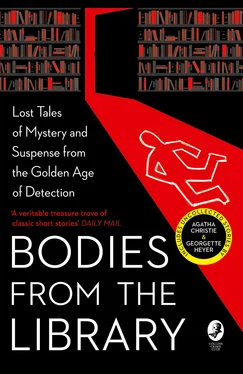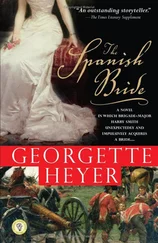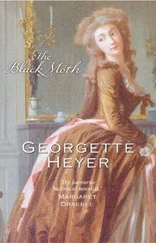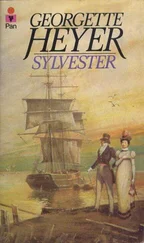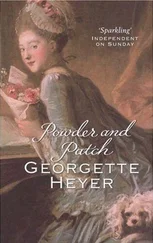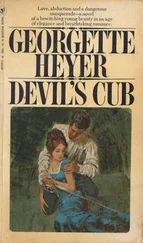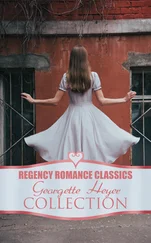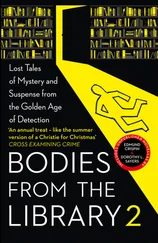Again there was a pause. Then he began to speak into the telephone. Quite calmly he told Caryu all that had happened. At the end he hung up the receiver and nodded to Fortescue.
‘Mr Caryu wants you to go back, Fortescue.’
Some of the pallor left Fortescue’s face.
‘Mr—Mr Caryu doesn’t suspect me, sir?’
‘No. You’d better get along as fast as possible. Tell Mr Caryu that I shall come round at once.’
‘One moment!’ interposed Linckes.
‘Can you remember what the man who fell against you looked like?’
‘Just—just ordinary,’ answered the unhappy secretary. ‘He was middle-aged, I think, but I won’t swear to it.’
‘I see. Thank you! Winthrop, I won’t stay to dinner, if you’ll excuse me. I’ll get right on to this at once.’
Winthrop nodded.
It was close on eleven o’clock that same evening, and Arlington Street was very quiet. One or two people passed down the road, and presently someone left Winthrop’s house and went away in a large limousine. Several people had visited Sir Charles that evening, and he himself had returned from Caryu’s house shortly after eight.
For some time after the last visitor had departed there was silence in the street, and then the chunk-chunk of a London taxi made itself heard, and in a few moments a car drew up outside No. 10. A man in an overcoat and opera hat got out, paid the driver, and mounted the steps to the front door. He pressed the bell, and stood waiting to be admitted. He was a medium-sized man, inclined to stoutness, and with a short, grizzled beard. The butler opened the door.
‘Is Sir Charles in?’ asked the newcomer. His voice was rather hoarse and guttural.
‘Yes, sir. But I don’t think he’s seeing anyone else today.’
‘Would you ask him if he will give me a moment?’
The man handed John a card. The butler read it.
‘Oh, Mr Knowles, sir! I beg your pardon! Will you come in while I see if Sir Charles is still up?’
Knowles entered the house, and the door closed again.
From the shadowy depths of the area two men rose stealthily, and crept up the steps to the street.
‘Got him!’ Linckes whispered. ‘Your revolver ready, Tomlins?’
His companion nodded.
‘Yes, it is. Wish I knew what you’re about.’
‘You soon will know,’ said Linckes grimly. ‘Your men are prepared?’
‘Inspector Gregory’s at the back of the house, Mr Linckes, and Inspector Marks is just down the road. He’ll come up to the house with Sergeant O’Hara as soon as we get in.’
‘All right. Don’t forget that all you’ve got to do is to follow me and to do as I say instantly.’
‘No, sir. Carry on!’
Linckes ran lightly up the steps of the house and rang the bell. After a short pause the door was opened.
‘John, is Sir Charles up?’
‘Yes, sir. Oh, is it you, sir? Come in!’
Linckes walked into the hall, followed by the other detective. John looked at Tomlins surprisedly.
‘Sir Charles is engaged just at the moment, sir. But if you’ll wait—’
‘Oh, is he? We’ll just wait here, then. Don’t bother to stay, John.’
He turned to Tomlins.
‘The library is at the bottom of this passage. It’ll be locked, and we shall wait in absolute silence outside. There are two men in the room, and when they come out you are to cover Sir Charles Winthrop. Leave the other to me. See?’
‘Can’t say I do, sir. But I’ll do as you say, of course.’
‘Then follow me. Not a sound, remember!’
In perfect silence the two men took up their stations on either side of the library door, revolvers held ready. The murmur of conversation could be heard within, and although neither Linckes nor Tomlins could distinguish any word spoken, they could hear that the talk was worried.
Then, after what seemed an interminable time, the key scraped in the lock, and Winthrop opened the door. Behind him stood the man Linckes had seen entering the house a few minutes ago.
For a moment there was dead silence as Winthrop stared haughtily from one levelled revolver to the other. Even now Linckes could not but admire the indomitable courage and sang-froid that Sir Charles displayed.
‘Really, Mr Linckes!’ he said, faintly amused. ‘May I ask what you think you are doing?’
‘Hands up, please!’ Linckes said sternly. ‘If you attempt to escape I shall shoot!’
Winthrop shrugged slightly, and raised his hands. Still he preserved that air of haughty bewilderment. But the man beside him had grown very pale, and was biting his under-lip. The hands that he held up were trembling.
Linckes advanced into the room, covering his man.
‘I may be doing you a grievous injury, Sir Charles, but I do not think so.’ With his free hand he drew a silver whistle from his pocket and blew three shrill blasts upon it. ‘Mr Winthrop, will you be so good as to remove your wig and your beard? Your make-up is excellent!’
Disregarding Tomlins’ levelled revolver, Sir Charles lowered his hands. He sank down into his chair, and regarded Linckes with a twinkle in his eye. His fine lips smiled generously.
‘Do tell me how you found out,’ he said pleasantly. ‘Take the wig off, Alec. The game’s up!’
With starting eyes Tomlins watched the pseudo Mr Knowles tear off his wig and beard. Night black hair with a faint crinkle in it was revealed, and when the man had rubbed his face with his handkerchief, removing most of the cunning make-up, the detective’s jaw dropped.
‘Sir—Sir Charles!’ he gasped.
A little, low laugh came from Winthrop.
‘Wonderful, isn’t it? Quite difficult to tell us apart.’ He paused, listening to the sudden pandemonium without. ‘Well, you’ve roused the whole household, Linckes, and I suppose your assistants are even now invading my house. You must allow me to congratulate you. I never thought you’d discover me. And I’ve had a fair run for my money, haven’t I? I don’t regret it a bit. Poor Alec’s looking rather glum. But then he always was rather peevish That was what made you suspect me in the first place, wasn’t it? Jolly clever of you to think of that blank sheet scheme. I ought to have guessed, of course. Fact of the matter is, you took me in. I didn’t think you suspected me.’
Tony dabbed at her eyes, and gave a tiny sob.
‘It’s so awful, Roger! I c-can’t bear to think of Charlie doing such a thing. I—I just can’t realise it. It—it seems impossible!’
Linckes patted her shoulder uncomfortably.
‘And—and somehow I can’t feel angry with him. He was always such a dear!’
‘I know. He was just one of those people who couldn’t run straight? ’Twasn’t altogether his fault. And one must admire his courage.’
Tony was silent for a moment, still mopping her eyes.
A pair of soft arms stole round his neck.
‘No; and I can’t help admiring you!’ whispered Tony.
Georgette Heyer, unquestionably one of Britain’s best-loved historical novelists, was born in 1902. She began her career as an author at the age of 19 with the novel The Black Moth , an exciting story about highwaymen set in the eighteenth century, which Heyer had expanded from a short story written to entertain her brother. It was the first of what would eventually be more than fifty novels, the vast majority of which dealt with the Georgian and Regency periods of British history.
While views differ as to the extent to which her books trod new ground rather than reviving scenarios and ideas from Jane Austen, Georgette Heyer was extremely popular and she remains so today, loved in particular for her lively and compelling characters and for the comedy and humour with which her novels are peppered. As a critic put it in 1929, Heyer’s historical novels ‘are not historical [and] they are not novel, but they are very good fun’.
Читать дальше
